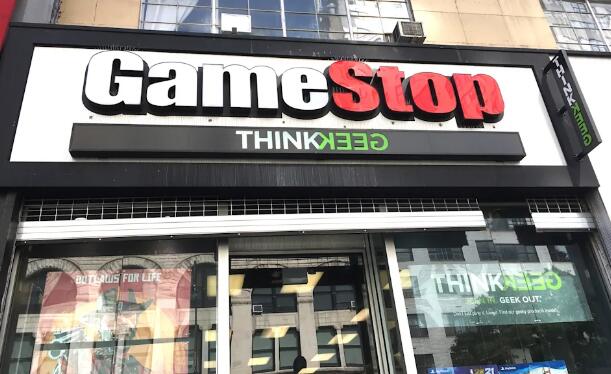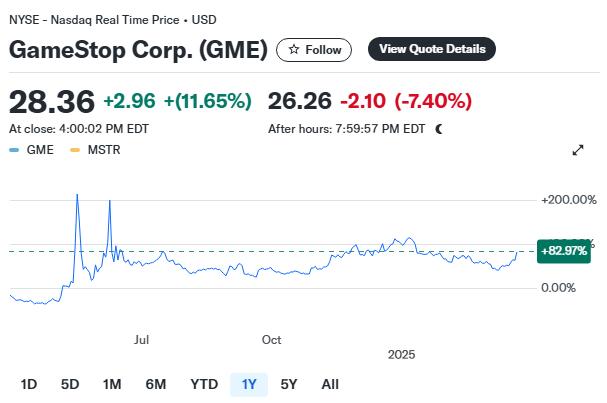GameStop’s stock price tumbled after announcing plans to raise $1.3 billion to invest in Bitcoin, following an earlier statement that it would add Bitcoin as a treasury reserve asset. The move mirrors MicroStrategy’s strategy, but analysts are skeptical about its potential to boost GameStop’s stock value, citing concerns about valuation and the company’s shifting strategies. The announcement came alongside disappointing fourth-quarter earnings, further fueling investor uncertainty.

GameStop (GME) is making a bold move into the world of cryptocurrency, but investors aren’t entirely convinced. Shares of the video game retailer slid more than 8% in after-hours trading after the company announced its intention to raise $1.3 billion through convertible senior notes, with the stated purpose of investing in Bitcoin (BTC-USD).
This news follows GameStop’s earlier announcement, just one day prior, that its board had unanimously approved an update to its investment policy, adding Bitcoin as a treasury reserve asset. This fueled a nearly 12% surge in the stock price.

Rumors of GameStop’s interest in cryptocurrency investments had been circulating for weeks, fueled by a social media post from CEO Ryan Cohen featuring MicroStrategy (MSTR) CEO Michael Saylor, a prominent Bitcoin advocate whose company holds a substantial amount of the cryptocurrency.
While MicroStrategy’s Bitcoin-centric strategy has yielded positive results, with its stock soaring over the past year alongside Bitcoin’s price, Wall Street analysts remain cautious about GameStop’s approach.
“The company’s strategy, which has changed about six times in three years, is they’re going to buy cryptocurrency and be just like MicroStrategy,” noted Wedbush analyst Michael Pachter. He further suggested that if GameStop were to invest its substantial cash reserves in Bitcoin and trade at a similar multiple to MicroStrategy, its stock price could actually decline.
The announcement of the Bitcoin investment coincided with the release of GameStop’s fourth-quarter earnings, which further dampened investor sentiment. The company reported $1.28 billion in net sales for the quarter, a significant 28% decrease from the previous year. Full-year adjusted EBITDA also declined from $64.7 million to $36.1 million.
These factors combined – the uncertain Bitcoin strategy, the potential for valuation issues, and the weak earnings report – have contributed to the negative market reaction, leaving investors questioning the future direction of the company.






















